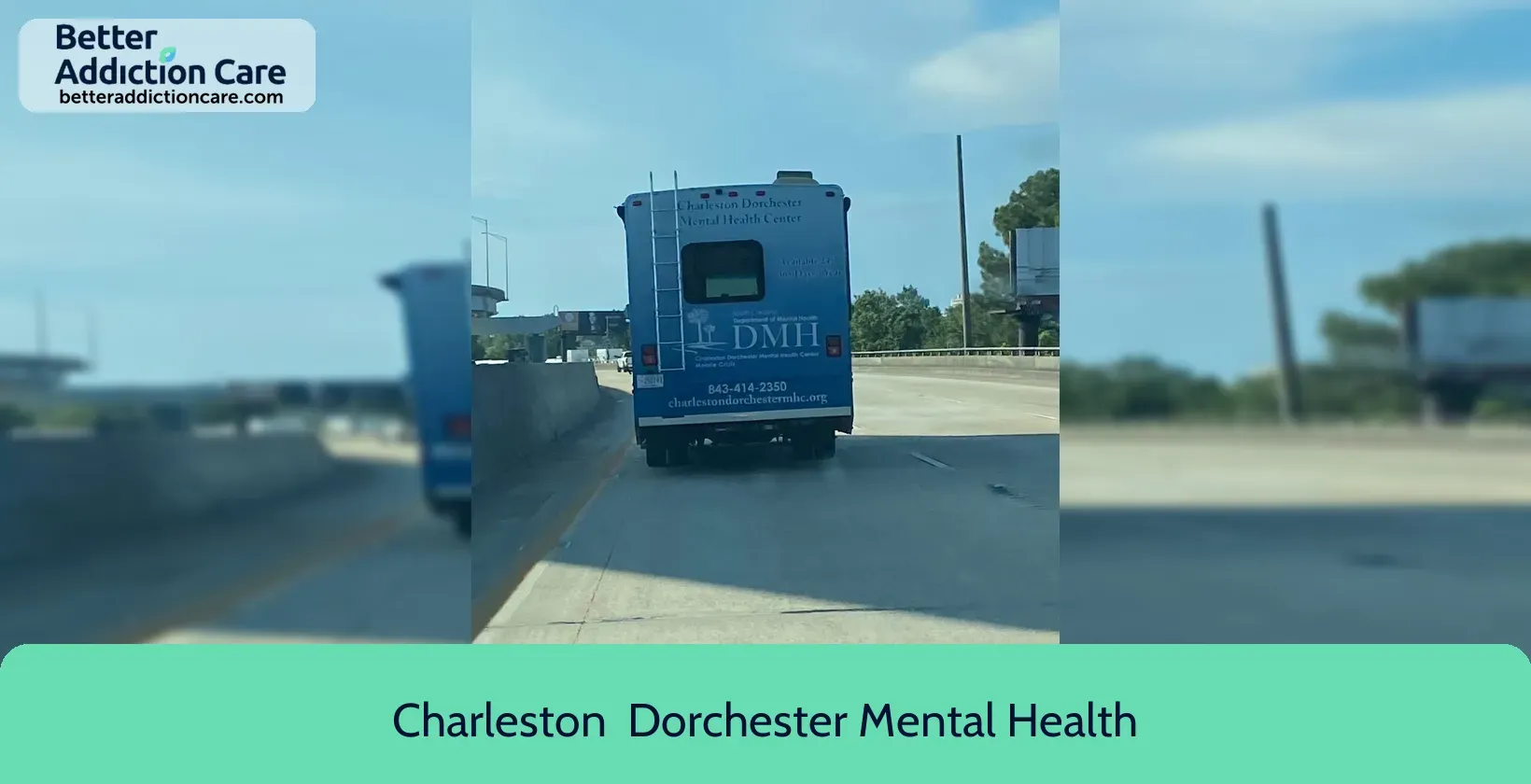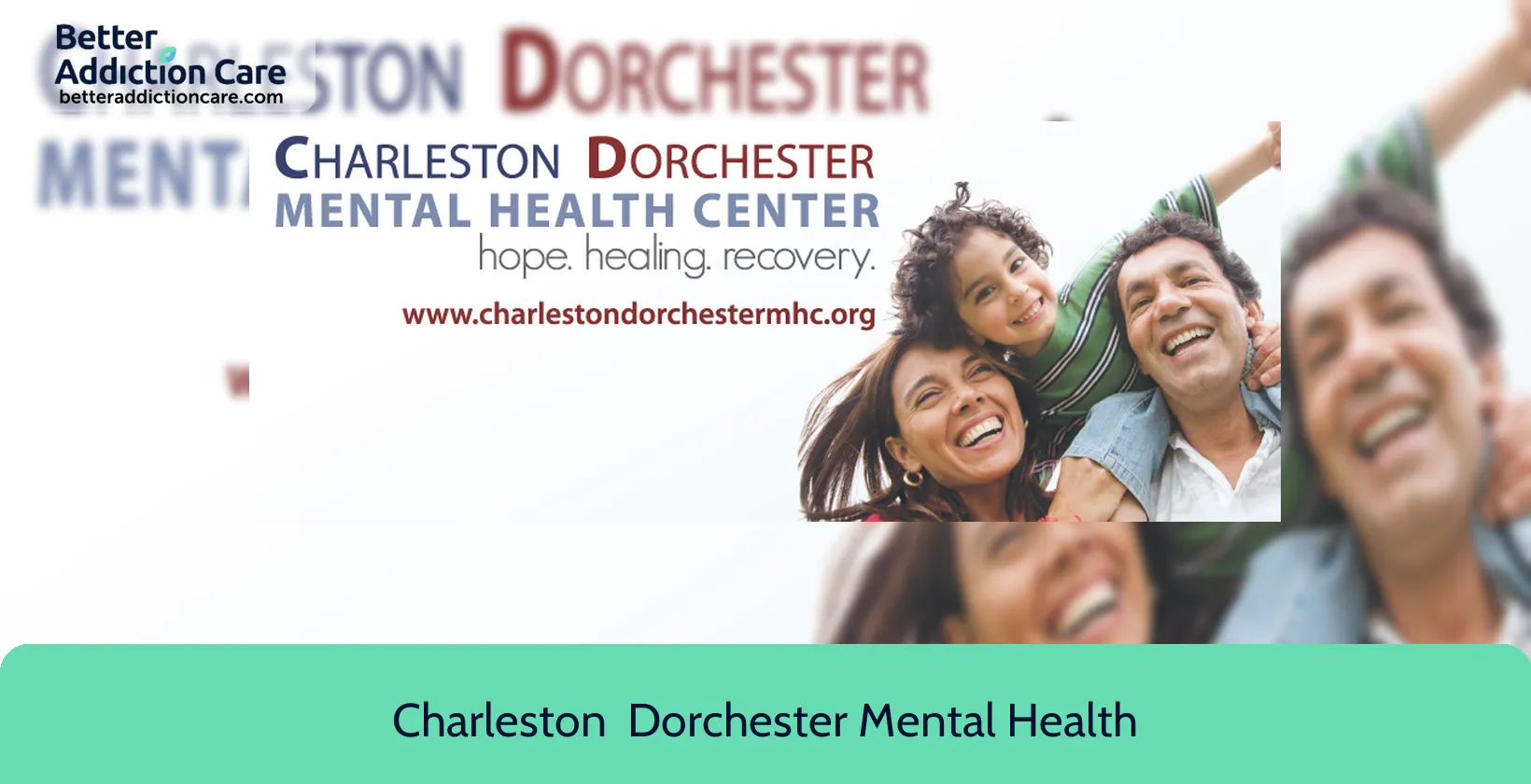Charleston - Dorchester Mental Health Center - Charleston Clinic
Overview
Charleston - Dorchester Mental Health Center - Charleston Clinic is a mental health treatment center for people seeking treatment near Charleston County. As part of their treatment modalities for recovery, Charleston - Dorchester Mental Health Center - Charleston Clinic provides couples/family therapy, group counseling, and cognitive behavioral therapy during treatment. Charleston - Dorchester Mental Health Center - Charleston Clinic is located in Charleston, South Carolina, accepting cash or self-payment for treatment.
Charleston - Dorchester Mental Health Center - Charleston Clinic at a Glance
Payment Options
- Cash or self-payment
- Medicaid
- Medicare
- State-financed health insurance plan other than Medicaid
- Private health insurance
Assessments
- Screening for tobacco use
- Comprehensive mental health assessment
- Comprehensive substance use assessment
Age Groups
- Seniors or older adults
- Young adults
- Children/adolescents
- Adults
- Seniors
Ancillary Services
- Assertive community treatment
- Case management service
- Court-ordered outpatient treatment
- Diet and exercise counseling
- Education services
Highlights About Charleston - Dorchester Mental Health Center - Charleston Clinic
6.74/10
With an overall rating of 6.74/10, this facility has following balanced range of services. Alcohol Rehabilitation: 8.00/10, Drug Rehab and Detox: 6.00/10, Insurance and Payments: 6.00/10, Treatment Options: 6.97/10.-
Alcohol Rehabilitation 8.00
-
Treatment Options 6.97
-
Drug Rehab and Detox 6.00
-
Insurance and Payments 6.00
Treatment At Charleston - Dorchester Mental Health Center - Charleston Clinic
Treatment Conditions
- Mental health treatment
- Substance use treatment
- Co-occurring Disorders
Care Levels
- Outpatient
Treatment Modalities
- Couples/family therapy
- Group counseling
- Cognitive behavioral therapy
- Dialectical behavior therapy
- Integrated Mental and Substance Use Disorder treatment
Ancillary Services
Languages
- Sign language services for the deaf and hard of hearing
- Spanish
- Other languages (excluding Spanish)
- Portuguese
Additional Services
- Pharmacotherapies administered during treatment
- Mentoring/peer support
- Metabolic syndrome monitoring
Special Programs
- Clients with co-occurring mental and substance use disorders
- Criminal justice (other than DUI/DWI)/Forensic clients
- Clients with HIV or AIDS
- Clients who have experienced trauma
- Children/adolescents with serious emotional disturbance (SED)
Contact Information
Read our Most Recent Article About Drug Addiction
DISCLAIMER: The facility name, logo and brand are the property and registered trademarks of Charleston - Dorchester Mental Health Center - Charleston Clinic, and are being used for identification and informational purposes only. Use of these names, logos and brands shall not imply endorsement. BetterAddictionCare.com is not affiliated with or sponsored by Charleston - Dorchester Mental Health Center - Charleston Clinic.










